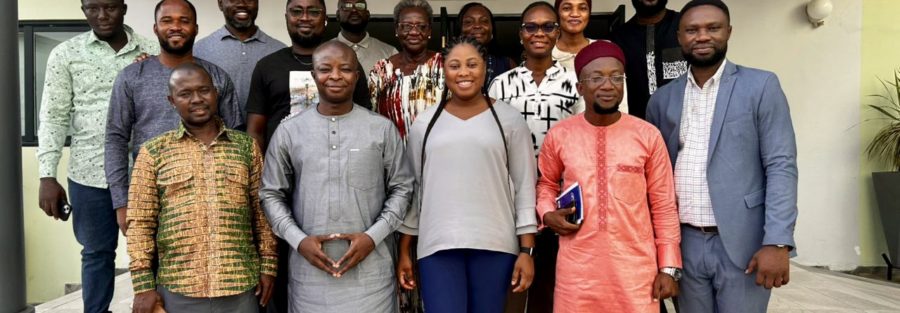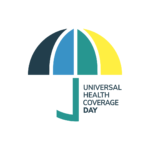ARHR has convened a Partner Review Meeting with key collaborators, including SEND Ghana, Songtaba, Youth Live, and GLOWA, to assess the progress of the “Putting Women and Girls at the Center of Primary Health Care (PHC)” project. This pivotal meeting, which took place on Friday, December 13, 2024, provided a dynamic platform for partners to evaluate the project’s achievements, challenges, and strategies, reaffirm their commitments, and share valuable experiences.
The project, geared toward empowering women and girls by ensuring equal access to healthcare services, has made significant strides in addressing the gender barriers limiting women’s participation in healthcare. During the meeting, partners reviewed critical aspects of the project, focusing particularly on developing a comprehensive curriculum to advance gender-responsive primary healthcare practices. Through this collaborative approach, partners are aligning their efforts to build sustainable systems to address the complex needs of women and girls in Ghana’s primary healthcare sector.
A key component of the meeting was reflecting on the Gender Model Family (GMF) framework facilitated by Send Ghana. This framework enabled the selection and training of 100 families per community, providing them with the tools and knowledge to tackle the gender power imbalances that often prevent women and girls from fully accessing and utilizing healthcare services. The GMF approach empowers families to reexamine and change entrenched gender norms that undermine the well-being of women and girls, and its positive impact is already being seen across the project’s implementation areas.
The Executive Director of ARHR, Madam Vicky Okine, emphasized the importance of collective action in achieving the overarching vision of a gender-responsive primary healthcare system in Ghana.
“It is imperative that we, as a coalition, remain united in our commitment to meeting the ultimate goal: making PHC in Ghana a truly gender-responsive system that not only addresses the specific needs of women and girls but also creates an environment that amplifies their voices, agency, and power within the healthcare system,” she said.
She further underscored the need for partnerships to continue building on the momentum achieved thus far and to adapt to evolving needs as the project progresses.
The meeting also provided an opportunity to reflect on the implementation challenges faced by partners, particularly in areas where traditional gender norms continue to restrict women’s access to healthcare services. By sharing these experiences, partners have been able to identify practical solutions and refine their strategies to maximize the project’s impact. These discussions highlighted how learning from setbacks is crucial to strengthening interventions and ensuring that the project is responsive to the barriers women and girls face in accessing healthcare.
The meeting produced several key outcomes, including renewed commitments from all partners to intensify their efforts to address barriers that prevent women and girls from accessing equitable healthcare services. Partners also outlined a roadmap for developing new activities that align with the project’s objectives, focusing on enhancing community-level interventions, strengthening institutional support, and advocating for policy reforms that promote gender equality in healthcare.
The “Putting Women and Girls at the Center of Primary Health Care” project, funded by Co-Impact, continues to make strides in reshaping Ghana’s healthcare landscape by tackling the root causes of gender inequality. The project is designed to empower women and girls and address unequal gender power dynamics that often dictate health decision-making and restrict access to care. By promoting more inclusive and equitable healthcare systems at the community and institutional levels, the project is making significant strides toward achieving universal health coverage for all, irrespective of gender.
ARHR and its partners remain steadfast in advancing health and gender equity. Through collaborative efforts, work is being done to ensure that no woman or girl is left behind in accessing essential healthcare services and that Ghana’s healthcare system becomes more responsive to the unique needs and challenges of women and girls.



